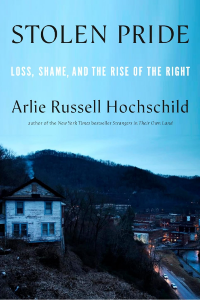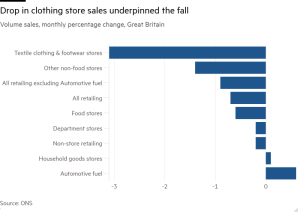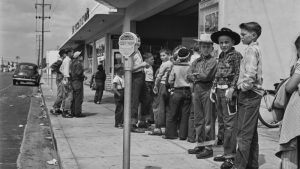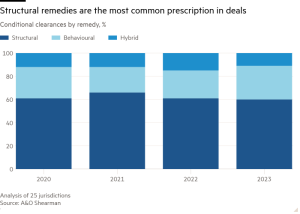Stolen Pride by Arlie Russell Hochschild — being the butt of a national joke

Unlock the US Election Countdown newsletter for free
The stories that matter on money and politics in the race for the White House
Publishers have a long tradition of dispatching scholars out into the American hinterlands to explain why people who live there act and think the way they do. Best sellers in the genre include What’s the Matter with Kansas (2004), a treatise on Midwestern conservatism, Let Us Now Praise Famous Men (1941), a Depression area exploration of rural poverty, and of course, Alexis de Tocqueville’s Democracy in America, an 1835 attempt to explain to Europe what those ex-colonists across the Atlantic were up to.
Now, just in time for the US presidential election comes the latest entry, a look at the impact of white nationalism and the far right in Appalachia. Arlie Russell Hochschild’s Stolen Pride explores life and opinions in Pike County, Kentucky, located in the whitest and second-poorest Congressional district in the US. Her research traces how the decline in coal mining jobs and the devastation wreaked by the opioid crisis have put the American dream of progress and prosperity out of reach for many in this shrinking community.
The author of several best sellers including books on parenting and Republicans in Louisiana, Hochschild, emeritus professor of sociology at the University of California, Berkeley, is a curious and skilled listener. In Stolen Pride, she draws out white nationalists, elected officials, convicted felons and recovering addicts. They tell her about feeling embarrassed and then angry about the way their region is portrayed as the butt of a national joke. “Commentators making fun of us for being fat, drugged out, talking funny, being poor and prejudiced. Tell me should I have to defend myself against that?” asks Andrew Scott, mayor of Coal Run Village, population roughly 1,600.
The book begins in 2017, when the county seat of Pikeville was chosen by neo-Nazi groups for a march that proved to be a dress rehearsal for a much larger white nationalist gathering in Charlottesville, Virginia, and the 2021 attack on the US Capitol. Interviews with the march’s organisers as well as local people who have to deal with the event reveal a once prosperous community now fallen on hard times. Residents raised in a tradition of personal responsibility are left full of self-loathing now that prosperity felt out of reach.

In Hochschild’s telling many Appalachian residents see themselves as “overburden” — the soil, trees and rocks that mining companies tossed aside as they ripped apart the mountainous landscape to get to the coal below. Largely left out of the technology and financial booms that powered urban and coastal growth, many Kentuckians have turned to anger and support for Donald Trump’s critiques of minorities, immigrants and “woke” elites. Trump has deliberately stoked their fury, selecting JD Vance, author of the best selling memoir of Appalachian dysfunction, Hillbilly Elegy, as his running mate.
Hochschild finds that few Kentuckians fully believed Trump’s claims about the US economy, immigration or himself, but they found his promises to restore American greatness empowering. “A lot of people think Donald Trump is highly self-centred and a narcissist, and he is. But when he’s running for us, that’s to our advantage,” said Roger Ford, who led a pro-Trump car caravan through eastern Kentucky ahead of the 2020 election.
Another resident, James Browning, compares Trump’s rhetoric to the opioids he used and sold before becoming a recovery counsellor: “A lot of us are addicted to things other than drugs, like to things politicians say.”
Browning has also managed to kick that habit, like some of Hochschild’s other interviewees who have turned away from anger and resentment. “[W]hy are we asked to look down on or hate migrants?” asks Browning. “We don’t like it when people look down on us.”
In the end, Hochschild argues that the US definition of progress is at the root of Kentucky’s ills. “In the common conception of the American Dream, the young must earn, own or do ‘more’ than their parents,” she writes. “But maybe more isn’t better. Maybe economic self-sufficiency, community and caring for the earth are a better goal.”
Stolen Pride: Loss, Shame, and the Rise of the Right by Arlie Russell Hochschild The New Press £21.99, 400 pages
Brooke Masters is the FT’s US financial editor
Join our online book group on Facebook at FT Books Café and subscribe to our podcast Life and Art wherever you listen
#Stolen #Pride #Arlie #Russell #Hochschild #butt #national #joke



